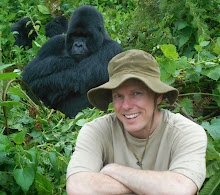
Back in Venice Sunday afternoon, word spreads along the docks that the moratorium has lifted. I check on-line but find no corroboration, but the vibe in Venice is upbeat and somebody must know something. It's the next step, a logical progression for the return to normalcy. We're to run a crew change during the night to Visca Knoll, due south of Mobile, taking a dozen guys to an offshore construction site where they'll spend the next two weeks working hard to kill time. I watch from the bridge as they arrive through the night, dropped off by wives or girlfriends; one car has tired-looking kids in the back seat, but they hug their dad and wave from the window pulling away. It's midnight.
We're to leave the dock at 0400, but until then, I'm left alone with study materials, still working to upgrade my license, to pass a written test in navigational competence. The discipline of navigation, like that of any science, is a considerable compilation, a mountain of miscellany amassed over millennia, an accumulation both linked and unlinked, methodical and erratic, one that's consumed heaps of resources, spent millions of lives and deaths each lived to the utmost and pushed to the extreme, both blessed and cursed by fear and fascination, terror and bliss.
Underway and offshore, fish and shrimp boats have returned to litter the night radar screen with excessive florescence, a smattering of obstacles each claiming its right of way. I spin the wheel back and forth, dodge right and left to give them a wide-enough berth. Their catch will continue to be "nose-tested", as it has been for months. According to a fisheries spokesperson on the radio the other day, no seafood caught since the well blew has failed the nose test. It's all been safe, the whole time. Somehow, that just doesn't seem likely, but Americans continue to consume literal tons of Louisiana seafood--although perhaps unknowingly--and they're paying more for it than ever.
I check instruments and waypoints, two radars, an electronic gps plotter and depth sounder, an old-school compass and binnacle, but I know where I am. Navigation in these parts is done primarily by memory, enough recognizable platforms and coastal sea buoys to keep most vessels on course. I know now that the planet may be perfectly dissected into mathematical divisions and that visual clues exist in the cosmos to help us determine where we are, to plot a fix and a course, to help keep our ass off the beach. I've learned that the nautical mile is exactly one minute of angle along a meridian of Earth and that an azimuth applied to certain equations, formulae discovered and extracted by obsessively smart people, may be plugged into tables from the nautical almanac, and that the result will make terrifying sense. I know that it's all beautiful. By the time we reach Visca Knoll, a slither of red moon has appeared and crawled southward. It rests just above our destination.

No comments:
Post a Comment